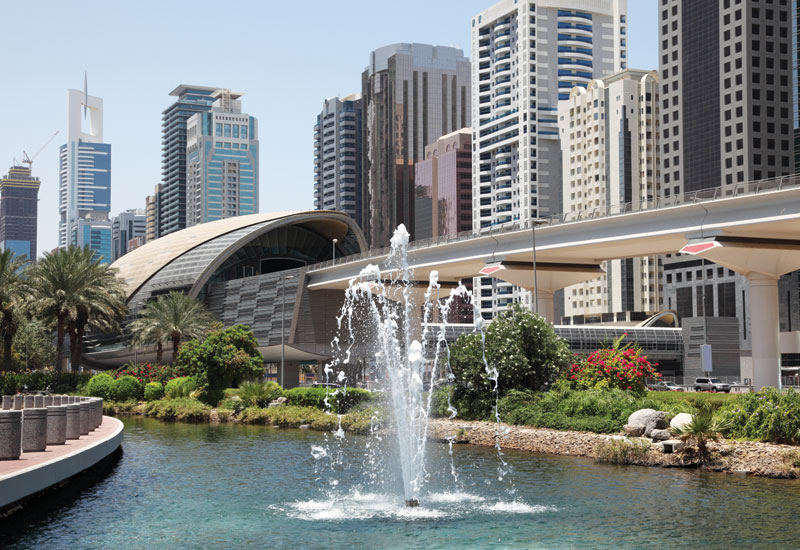 Dubai Metro's Green Line launches on 9 September adding a further 18 stations and 23 km to the existing rail network.
Dubai Metro's Green Line launches on 9 September adding a further 18 stations and 23 km to the existing rail network.
Dubai has stood out as the sole ‘oasis of calm’ amidst recent political turbulence across the region, which has proved to be great news for tourism to the emirate
While crisis and political turmoil in the Middle East brought tourism to a shuddering standstill in many of the region’s travel hot spots this year (take Egypt as a prime example) —Dubai appears to have emerged from all the chaos not only unscathed, but positively radiant.
Recent data from Ernst and Young revealed that the first six months of this year saw Dubai hotel occupancies increase to 82%, up from 79% over the same period last year — the highest in the Middle East.

| Advertisement |
Meanwhile, Dubai International Airport handled 4.7 million passengers in July — an increase of nearly 10% on the same month last year, and a new record for monthly traffic, and year-to-date traffic reached 29.3 million, up 9% on 2010. The airport now hopes to overtake Hong Kong as the world's third busiest airport by the end of the year.
Market experts agree that while political turmoil spread from Egypt across the Arab world, Dubai has been viewed as an ‘oasis of calm’, and as a result tourists have been flocking to the emirate.
David Thomson, regional general manager, Jebel Ali International said: “I hate to say this but [the political turmoil] has probably benefited us in many respects. Certainly this summer we have seen many enquiries from Spain and Italy which would traditionally go to Egyptian Red Sea resorts of Sharm el Sheikh and Hurghada."
He added: “Dubai has really benefitted from years and years of the government marketing Dubai globally. That message about Dubai being a great place to come for the family, being safe with low crime, spread constantly by DTCM for the last 10 years is really paying dividends now.
"When you see these things happening in Tunisia and Egypt etc, Dubai is immediately seen as the safe alternative.”
Mövenpick, VP sales & marketing Middle East, Toufic Tamim agrees, adding that a major benefit has been the influx of Chinese tourists who lengthened their stay in Dubai after cancelling out of Egypt: “This market had booked two- and three-night stopovers — but since the unrest, Chinese tour operators and local DMCs have sold Dubai as a final destination with four to five nights, so we have benefited from this.”
Even the summer season, traditionally a difficult, low period for Dubai has been described by one operator as “exceptional”.
Richard Devadasan, manager - M.I.C.E, SNTTA Emir Tours said: “This summer has been exceptional with increased visitor numbers from the past year and things are looking up for the city.”








 Search our database of more than 2,700 industry companies
Search our database of more than 2,700 industry companies









